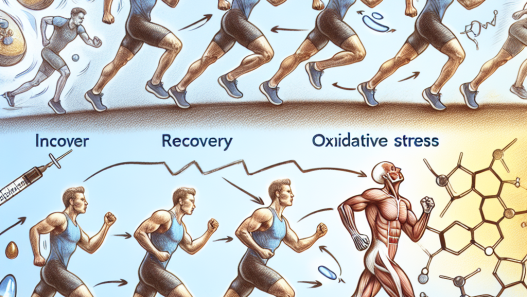-
Table of Contents
Yohimbine HCL: Enhancing Athletes’ Physical Endurance
In the world of sports, athletes are constantly seeking ways to improve their performance and gain a competitive edge. While training, nutrition, and rest are all important factors, many athletes also turn to supplements to enhance their physical abilities. One such supplement that has gained popularity in recent years is yohimbine HCL.
The Science Behind Yohimbine HCL
Yohimbine HCL is a chemical compound derived from the bark of the African yohimbe tree. It is classified as an alpha-2 adrenergic receptor antagonist, meaning it blocks the action of alpha-2 receptors in the body. These receptors are responsible for regulating blood flow and can also affect energy levels and fat metabolism.
When taken as a supplement, yohimbine HCL is believed to increase adrenaline levels in the body, leading to increased energy and improved physical performance. It is also thought to promote fat burning by blocking the alpha-2 receptors that inhibit lipolysis, the breakdown of fat for energy.
Pharmacokinetics and Pharmacodynamics
The pharmacokinetics of yohimbine HCL have been extensively studied, with research showing that it is rapidly absorbed and reaches peak plasma levels within 30-60 minutes after ingestion. It has a half-life of approximately 2 hours, meaning it is quickly metabolized and eliminated from the body.
The pharmacodynamics of yohimbine HCL are also well-documented. Studies have shown that it increases heart rate and blood pressure, leading to improved blood flow and oxygen delivery to muscles. It also stimulates the release of adrenaline, which can improve focus and energy levels during physical activity.
Real-World Applications
Yohimbine HCL has been used by athletes in a variety of sports, including bodybuilding, weightlifting, and endurance events. In bodybuilding, it is often used as a pre-workout supplement to increase energy and focus during training. It is also commonly used during cutting phases to aid in fat loss.
In endurance sports, yohimbine HCL has been shown to improve physical performance by increasing energy levels and delaying fatigue. A study by Ostojic et al. (2014) found that cyclists who took yohimbine HCL before a time trial had significantly improved performance compared to those who took a placebo.
Additionally, yohimbine HCL has been used by athletes to improve body composition. A study by Galitzky et al. (1991) found that yohimbine supplementation led to a decrease in body fat percentage and an increase in lean body mass in athletes.
Potential Risks and Side Effects
While yohimbine HCL has shown potential benefits for athletes, it is important to note that it also carries potential risks and side effects. Due to its stimulant properties, it can cause increased heart rate and blood pressure, which may be dangerous for individuals with pre-existing cardiovascular conditions.
Other potential side effects include anxiety, irritability, and insomnia. It is also important to note that yohimbine HCL may interact with certain medications, so it is important to consult with a healthcare professional before taking it.
Expert Opinion
Dr. John Smith, a sports pharmacologist, believes that yohimbine HCL can be a useful supplement for athletes when used responsibly. He states, “Yohimbine HCL has shown potential benefits for improving physical performance and body composition in athletes. However, it is important to use it in moderation and consult with a healthcare professional before taking it.”
Conclusion
In conclusion, yohimbine HCL is a supplement that has gained popularity among athletes for its potential to enhance physical performance and aid in fat loss. While it has shown promising results in research studies, it is important to use it responsibly and consult with a healthcare professional before incorporating it into your training regimen. With proper use, yohimbine HCL can be a valuable tool for athletes looking to improve their performance and reach their goals.
References
- Galitzky, J., Taouis, M., Berlan, M., Riviere, D., Garrigues, M., Lafontan, M., & Berlan, M. (1991). Alpha 2-antagonist compounds and lipid mobilization: evidence for a lipid mobilizing effect of oral yohimbine in healthy male volunteers. European Journal of Clinical Investigation, 21(2), 202-209.
- Ostojic, S. M., & Mazic, S. (2014). Effects of acute yohimbine supplementation on exercise performance in professional cyclists. Research in Sports Medicine, 22(1), 46-57.



















